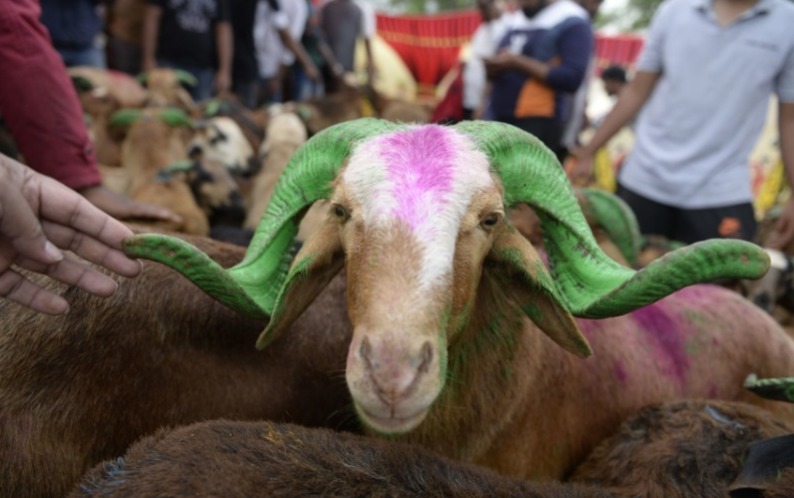
Ahead of Eid-ul-Adha, the experts here have urged the public to scientifically dispose of the hides and other animal waste as improper disposal of animal skin and waste is a significant environmental and public health concern.
They said that indiscriminate disposal poses a major risk of disease transmission; municipal committees, civic bodies and religious bodies must come forward for scientific disposal of the waste.
Dr Mohammad Salim Khan, Head of Department Community Medicine at GMC Srinagar told the news agency—Kashmir News Observer (KNO) that as amidst the summer season, the slaughter and post-slaughter processes shall be carried out diligently, taking care of the animal wastes including offal and hides.
“The blood and other body fluids, discards are rich sources for infection growth and can cause public-health and environmental concerns,” he said, adding that the indiscriminate disposal of offal and hides in open areas, drains and water bodies possess a bigger risk of disease transmission and they not only invite animals to devour them but can contaminate the drinking water sources, both open and ground water, thus causing water borne infections and diseases.
“These unpleasant sites invite flies, mosquitoes and other germs to thrive and spread various diseases,” he said.
He said that the local civic bodies, municipalities as well as various social and religious organisations and groups shall come forward in collecting hides for further use or scientific disposal.
“The Muslim Ummah shall imbibe the spirit of sacrifice while performing slaughtering of sacrificial animals and consider the noble act of Qurbani beneficial to the community and humanity at large,” he said.
He added that the post-slaughter processes shall include intense cleaning and disinfection of areas wherever the slaughtering is performed and shall not make these areas vulnerable to animal intrusions and public-health risks.
Dr Suhaib A. Bandh, Assistant Professor, Environmental Science at S P College Srinagar told KNO that the improper disposal of animal skin and waste during Eid ul Azha is a significant environmental and public health concern, contributing to pollution, disease spread, and unpleasant odors.
“To mitigate these issues, it is essential to establish and enforce strict waste management protocols. Municipal authorities should provide designated disposal sites and increase waste collection services during the festival,” he said.
“Public awareness campaigns are crucial to educate the community on the importance of proper disposal,” he added.
“Additionally, investing in biodegradable disposal bags and encouraging community participation in cleanup efforts can help maintain hygiene, protect ecosystems, and ensure the well-being of the population,” Dr Suhaib said.
Firdous Ahmad, an Executive Engineer in Jal Shakti department said that people must show civic sense by not throwing animal waste along the roadsides or in water bodies.
He said that they can properly dispose of it by digging a pit and hiding all the waste in it. He said that people can collect all the waste at a single spot in a village or Mohalla and the government must keep their machinery ready to collect them and treat them scientifically at the treatment plants available at district level so that there won’t be its bad impact on the environment in general and water bodies in particular—(KNO)
Author Profile
Latest entries